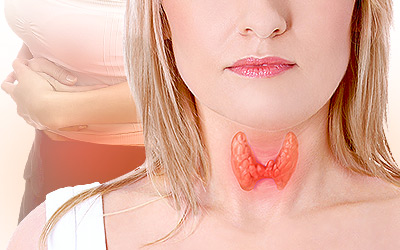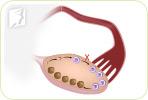
Perimenopause is the term used to describe the time right before menopause when women begin experiencing common menopausal symptoms. The reason women experience symptoms like irregular periods during this phase is because hormone levels, particularly those of estrogen fluctuate. However, some of these side effects are avoidable and treatable with medications and lifestyle changes.
Menopause is defined as the cessation of menstruation and fertility, therefore to experience irregular periods in the years preceding this transition is entirely natural. While it might not be possible to "cure" irregular periods women can find ways of alleviating their experiences.
What Are the Symptoms of Irregular Periods?
Women who begin to notice irregular periods around the age of 35 can surmise that menopause is on the way. Being prepared to deal with the symptom is half the battle when dealing with irregular periods as its common place nature can provide a huge source of relief. Signs and symptoms of irregular periods include:

- Spotting or bleeding between periods
- Heavier than normal bleeding
- Shorter or longer cycle than normal, for several consecutive cycles
- Bleeding more than five tablespoons during a single period
How Can I Manage My Irregular Periods?
Because irregular periods are commonplace during perimenopause, you should seek out ways of managing them that work for you. A few tips to keep in mind are:
Keep panty liners handy for unexpected bleeding
Use panty liners instead of tampons. Some professionals warn against the use of tampons for spotting because it isn't as easy to gauge blood loss. Also, inserting a tampon may worsen symptoms if there is a problem with the cervix.
Keep track of your cycle
Sometimes, a pattern can be found within irregular periods which will help you to remain prepared for each episode.
Exercise and eat a healthy diet

If you are nearing typical perimenopause age, but find most of the commonly associated symptoms haven't begun, your irregular periods may simply be the result of a hormonal imbalance. This can be corrected by small lifestyle changes such as altering your diet to consume more nutrients and exercising regularly.
For More Information
Menopause is the term used to describe the year after a woman has gone 12 consecutive months without menstruating. It is not normal to bleed after menopause and postmenopausal bleeding should be addressed by a doctor.
Sources
- Hutchinson, Susan M.D. "The Stages of a Woman's Life: Menstruation, Pregnancy, Nursing, Perimenopause, Menopause". November 2007.
- Love, Susan M.D. Menopause and Hormone Book. New York: Three Rivers Press, 2003.
- BMJ Group. "Menopause: What is it?" Patient Leaflet. 2007



